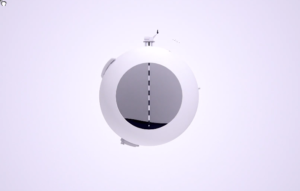The patent for the company’s Pipe-within-a-pipe technology covers the system, method, and apparatus for safely and efficiently transporting hydrogen up to 1,000 miles inside virtually any existing oil and gas pipeline, water pipe, sewer line, storm drain, or other pipelines.
Such lines run below ground under virtually every major city in the world. Having a reliable way to safely utilize them to distribute pure hydrogen effectively solves the problem of distributing fuel cell grade hydrogen from regional depots and local production facilities to where it can be used as a carbon-free replacement for gasoline, diesel, natural gas, and other fossil fuels.
Safe and efficient
“Solving the ‘last mile’ delivery problem is a big deal,” said Joe Powell, former Chief Scientist for Shell Oil Company, who led Shell’s R&D programs and served as Chair of the U.S. Department of Energy’s Hydrogen Technical Advisory Committee before joining H2 Clipper’s Advisory Board in 2021. “A major impediment to the commercial viability of hydrogen is the need for better solutions to the challenge of efficiently conveying hydrogen to distribution and dispensing sites and ultimately the end user, including factories, warehouses, transport vehicles, and perhaps even individual homes. H2 Clipper’s innovative technology can potentially provide a safe, efficient, and lower-cost way to do this.”
The novel approach covered by the patent utilizes flexible pipe rated for hydrogen use by the American Society of Mechanical Engineers (ASME) with a 50-year useful life at 2,500 psi. That pipe is located inside another pipe with a slightly larger diameter, referred to as a ‘safety pipe’ that runs an inert gas in between the two pipes to constantly sweep for hydrogen molecules. With a capacity to preserve purity levels of 99.7% or higher, the new technology could help ensure the required purity levels needed for use of hydrogen in fuel cell electric cars, buses, trucks, and locomotives.
No interfering
H2 Clipper Founder and CEO, Rinaldo Brutoco, said: “With the safety pipe, sweeper gas, and our proprietary continuous monitoring system in place, hydrogen can be run inside nearly any existing pipeline without interfering with the continued commercial use of that line. Our Pipe-within-A-Pipe will save companies and governments hundreds of billions of dollars by avoiding the construction of new hydrogen pipelines or retrofitting existing ones for hydrogen. Taken together, these measures will dramatically accelerate the hydrogen economy, which is our mission and commitment at H2 Clipper.”
“H2 Clipper’s innovation is critical to realizing decarbonization goals worldwide,” explained Bob Boyd, former Chair of the Hydrogen Industry Panel on Codes (HIPOC) and CGA Hydrogen Technology Committee and principal member of the NFPA-2 Hydrogen Technology Committee. “By utilizing pipes that are already rated for hydrogen use under ASME B31.12, all pipeline operators worldwide can begin to implement distribution networks of fuel cell grade hydrogen almost immediately.”
H2 Clipper intends to work with existing pipeline companies, pipe manufacturers, and large utility system integrators to deploy the technology as rapidly as possible. Additionally, H2 Clipper’s patent was filed under the International Patent Cooperation Treaty (PCT), giving the company the ability to secure protection in over 130 countries. The company expects to file shortly for corresponding patents for all countries in the EU, as well as the UK, Australia, Korea, Japan, and China.






